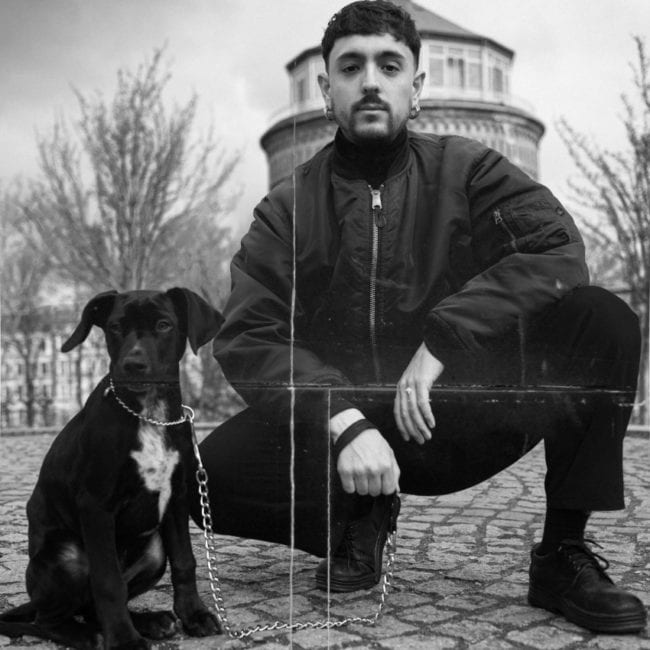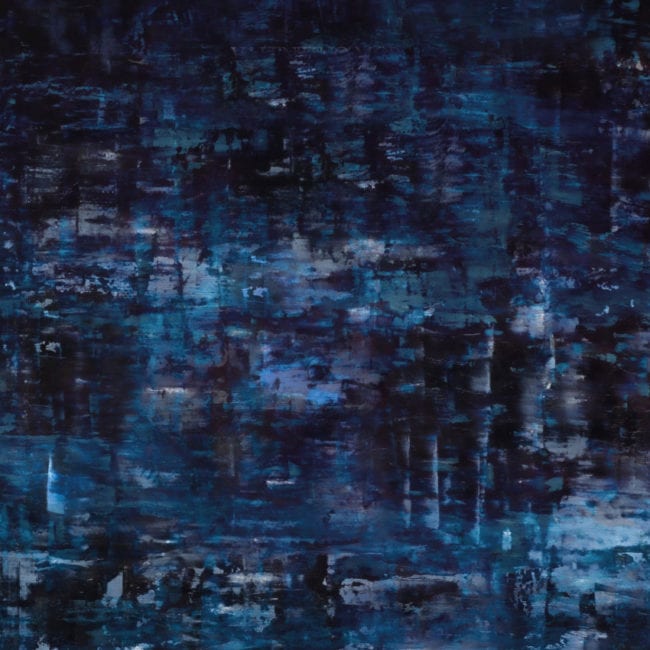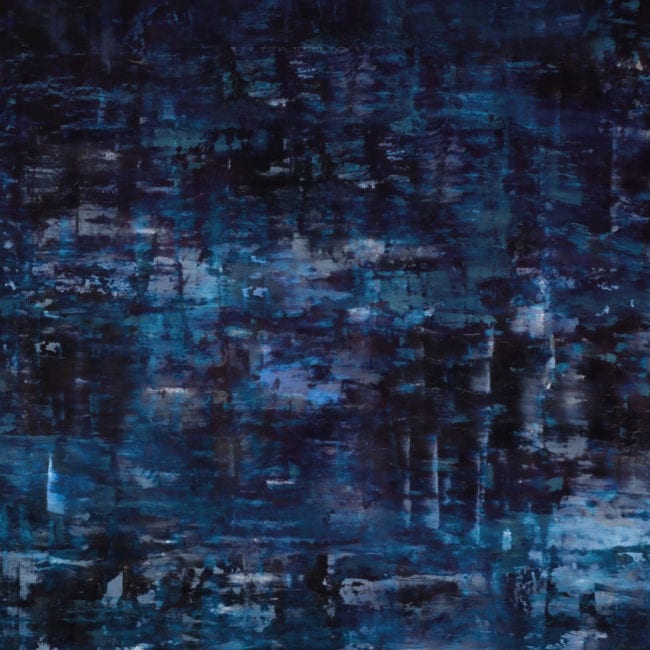The sky was by Berlin standards strangely eloquent and luminous when I met Valentino Canzani Mora at his apartment. It was that anxious time before the clouds started to envelop the sun and begin to burst. It was a moment of sweet tranquillity that we both had to enjoy, as you don’t often get many moments like it during a Berlin winter.
Mora’s music has always had a tranquil calm, a spiritual and meditative quality too, even when heavy drums are present. His desire to explore the link between spirituality, sexuality, percussion and the niche ambient house scene predated the launch of his own IDO (Intercontinental Dance Organization) label in 2016. But since launching IDO it has acted as a vehicle for explorations into rhythmic, hypnotic, and introspective ambient and tribal house.
The transition to current day artist and sound did not come without sacrifices. Retaining a belief in the new label’s principles, his own creativity and rejecting gigs may seem obstinate but the approach has been rewarded in recent years with appearances and performances at a range of some of techno’s best clubs and festivals, in addition to growing catalogue of releases and remixes on Dement3d, Smoke Machine, Semantica, Scissor & Thread and Delsin.
An affinity to the metaphysical has been the basis of the French producer’s music and a subject that inspires him in his search to relieve anxiety and tension through music. Last year marked an attempt to develop the concept with IDO releasing the exceptional ‘Transcendental Movements Vol.1’ compilation featuring some of Mora’s favourite artists connecting glitch, ambient and minimalism. The compilation was an abstraction of Mora’s ideas on active meditation and its ability to transcend one’s awareness of motion and body and allow oneself to become absorbed entirely in the sound.
Whilst IDO has mainly been a space for him to research alternative anxiety relief methods and meditation through sound, his remixes and previous EP for Spazio Disponibile exemplify an understanding of tribal and hypnotic techno. After our meeting, it was easier to understand the connection between grooves, percussive instruments and drums and how producers like Joe Clausell, Mika Vainio and Terre Thaemlitz have had such an influence on his work.
‘Underwater’ feels like a journey into self-introspection, a consuming and pulsating study of our relationship with natural elements and their translation into sounds. Water naturally plays an important inspirational role, but also the presence of electricity, forests and desolate landscapes can be felt. This transportive and experimental piece of music, broken into 8 tracks, is also more geared towards a live setting.
The LP is a beatless manifestation of his previous work, shifting focus purely on transportive soundscapes, processed synthesizers and eerie drone rhythm structures. The mesmeric and spacious sound design encircles and places you directly in a cavernous cave of serenity. This is not the reverberating techno album you perhaps wanted, but it’s the deep experimental album you are going to want to invest in.
Accompanied by some exquisite ambient music with his beautiful young dog, Yakuru, we sat together for a few hours to explore his studio techniques, analyse his IDO ideologies, and most importantly hear about his mind-altering new LP for Spazio Disponibile.
Interview by Luke Hawkins

"It’s hard to find artists that fit well and I really don’t want to forget the idea that is in my head. I don’t care, per se, about IDO sounding old school or new school"
The IDO releases sounded like a step in a new direction for you. Was there a point where you noticed a distinct sound change in your production?
Definitely. The sound I make now is completely different from what happened in the past. It was a slow evolution but there was clearly a moment where I felt like I needed to express what I am feeling. You can hear a difference in my past technical or club focused tracks and the IDO stuff where I feel like I am sharing my feelings.
Regarding IDO your plans for the label, what have you got lined up for this year?
IDO is going wild and a lot of work is happening right now. Thankfully I have now a label manager, Donelle Kosch, as it was getting too much for me. The last release was the ambient compilation ‘Transcendental Movements Vol.1’, which was a lot of work and took a couple of years to put together. That was the first time I did the production myself of a compilation and a gatefold LP and I was really surprised at how quickly it sold out.
I was honestly not sure how it was going to work as this compilation was so personal and a very specific type of ambient that sometimes I felt like I was the only one listening to this kind of music haha. But people seemed to enjoy it and I got some really great feedback.
We have IDO06 coming in a month or so from a new artist and I am currently working on the ‘Transcendental Movements Vol.2‘ compilation. There are also a couple of EPs in the works after this and I am actually…this is exclusive news, by the way, I am starting a new sub-label called ‘EDO’ (Exothermal Dance Organization).
That sounds interesting. Does EDO represent something different from IDO?
Basically, it is a techno sub-label with a darker style of my sound which I have previously released on other labels. I think it is connected with what I do on IDO but have not felt comfortable releasing those tracks on the label yet. I mean, it would break the concept for IDO which I have that is very, very specific. The first EDO EP will be from me and is also coming soon.
IDO has a distinct and definite sound palette. Is this something you wanted to protect?
Exactly, the new sub-label will be more techno but will obviously be very deep. I mean, everything I do is deep. I am really proud of IDO and it’s evolution. When I started the label with the first three releases from me I felt really alone in the world. I had no idea who I wanted to sign or who could release as I had a very specific style in mind. I thought only a few people at that time would suit the aesthetic.
Who were they?
Well, for example, Terre Thaemlitz, and also Margaret Dygas but she would have been impossible to pull away from Perlon. So yeah basically musically and conceptually is quite hard to explain but in my head, it’s very precise. It’s hard to find artists that fit well and I really don’t want to forget the idea that is in my head. I don’t care, per se, about IDO sounding old school or new school or whatever. I just have this very personal concept and sound and image for IDO that I want to continue for a long time.
This is why it was important for me to create the ‘Transcendental Movements’ compilation and do it once per year. I feel like people might still be understanding what is going on with the label as we only had five releases so far. And this bridge between ambient and house/techno, whatever you want to call it, is essential to the concept.
Do you deliberately release fewer records because of quality control?
If I could, I would release very often. I don’t know how people like Editions Mego do it with two records per month as it’s so much work haha.
Is that because you want to search for the right artist who has the right music that fits in with IDO?
Actually, I don’t really search for music. I also wanted to do an IDO event but couldn’t find artists that would fit there when I started the label. It was impossible and I kind of gave up. After some time, out of nowhere, I started to receive music on Soundcloud. And I received some really amazing stuff.
I get a lot of requests via Soundcloud and I try to listen to it. About 80% of the messages I receive are written quite impolitely, and saying that I might like their music or that it could fit IDO, it ends up being some industrial thumping techno and I think “why did you send this to me?” I think some people see the number of followers before listening to the actual music from the label.
So the connection with Olorun, how did that transpire?
Olorun for example, who released the fourth IDO EP, is a French guy who I didn’t know before. He sent me a long message and by reading it I immediately felt that he understood completely what I was trying to do, which I had thought was impossible. I said, I am definitely going to check his work out and BOOM. There it was. He sent me almost a full album’s worth of music. Thankfully I listened to it!
It happened again recently with another French techno producer, who has a new alias which I am not supposed to say anything about haha. He sent me a beautiful message that touched me a lot and when I heard the music I was like WOW this is exactly what I wish to release as an evolution of IDO’s sound. This connection was really perfect, and I didn’t have to request to change tracks or something. It came together quite naturally.
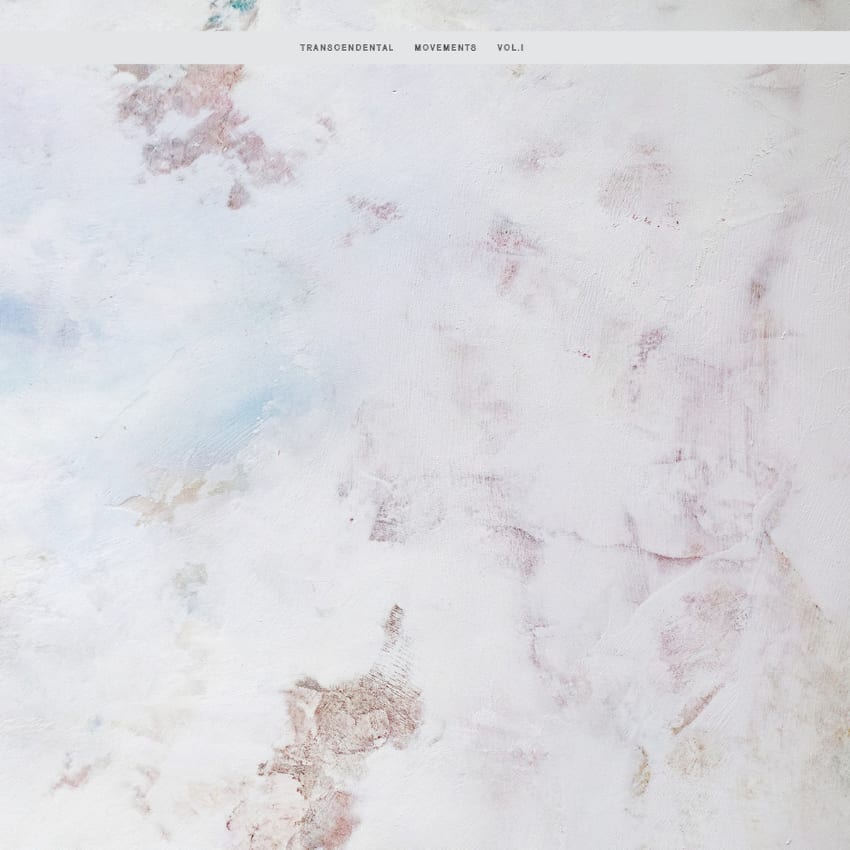
"Mostly it's about energy and atmosphere, not only about mind and body dance music but also very focused on sexuality and homosexuality particularly. And this was actually the biggest influence"
When I’m digging for records or listening to new digital releases, I have a sense of knowing after just a couple of bars or hearing some percussion whether it is a yes or a no to buying. Do you get the same sensation when you are listening through the promos?
Well, it’s a bit more complicated for me regarding whether I release something or not, as opposed to whether I buy it. It’s another type of listening when you know it has the potential to fit the label as it’s probably going to be the only release of the year.
I definitely have the same feeling you mentioned though when people send me club music or when I am in a record shop. I listen to 2 bars and then yep, boom. One long 909 hi-hat and I know it is a no for me already haha.
When I was thinking of how to describe IDO and music from your past Spazio Disponibile release, it was tricky. I always felt this connection between tribal and organic ambient house music and something spiritual or meditative. Like the music is a vehicle for anxiety relief or something existential.
No, I think you are almost there. I am glad you didn’t say techno by the way. When I talk about IDO I realise for some people it’s difficult to understand what I say. The main influence for the label is really ambient house.
Lately, it has seen a mini-revival but when I started I didn’t really know anyone doing this sound. And with this tribal sound, I mean nowadays it’s everywhere, but for me, this was something I embraced with all the records from the ’90s.
Between ‘91 and ‘93 specifically from New York, from Japan, and Italy. Before and after, these sounds and atmospheres were gone. Since then I have been obsessed and I have all the records and love all the labels from this era. IDO was sonically on one hand a new take on this era that sadly died too soon. Aside from DJ Sprinkles, by the way, who still fucking does it and doesn’t care about anyone or anything.
I talk to a lot of big techno labels and I was shocked to hear that some of them actually sell fewer records than IDO01 did. I think that sound died a long time ago and that’s why probably a lot of people are excited to hear that atmosphere again. When you know it, you know it…the really early Joe Clausell stuff, NU Groove, Progetto Tribale, Terre Thaemlitz.
We seem to share a love of Terre Thaemlitz and DJ Sprinkles and anything she has ever made.
Haha definitely.
But IDO, in comparison to an earlier DJ Sprinkles record, has a distinctively darker and atmospheric quality.
When you are really into the older ambient house and you listen to IDO and you are confused I can understand. But there are many obvious connections between those styles and my music. Mostly it’s about energy and atmosphere, not only about mind and body dance music but also very focused on sexuality and homosexuality particularly. And this was actually the biggest influence. The extravagance, the imagery, this dream of a crazy party with everyone naked, drag queens going crazy to 115bpm house in New York.
Actually, this is one of the reasons that made me move to Berlin because of Panorama Bar and this spirit of freedom, expression and sexuality.
There is definitely freedom in Berlin clubs that many cannot replicate.
Yeah definitely and one thing that underpins it all is good music. Good music and not having to play crowd-pleasers or go faster because you feel you have to.
It reminds me of hearing DJ Sprinkles in Plastic People for the first time when she started her set and suddenly cut the volume and the tempo.
She really made my life possible. When I started the label and took on my given name as my new artist name, I really radically changed my approach from one day to the next with my agent. I told her the old life is finished, you have to refuse gigs and it was very hard. So many times people wanted to book me under the old alias.
But like you said like Sprinkles drops the tempo by 20bpm and the decibels by probably the same, it works for her and people expect it. She’s been doing it for almost 30 years. It’s something I love. She played in front of no one for a long time in her early days and now she’s a legend so I owe a lot to her. She was my biggest inspiration business-wise as well, which made me not give up. Because for the first few years of IDO I had zero bookings. The records were selling well but with zero press.
You mentioned Joe Claussell earlier. His drumming and rhythms are things you can feel living inside your tracks. Is his sound something you tried to reproduce?
Firstly you cannot ever really replicate Joe Clausell haha. Because he is such an extraordinary percussionist. Mixdown and groove wise I guess I try to replicate percussions as much as I can to embody Joe Claussell. The thing is I will never get close to him and his skills so my tracks will never be a replica of his. I don’t sound like him, and we don’t have the same concept so I guess you could call it inspiration.
I know what you mean, you might have two sets of the same instruments but you will never interpret them or produce sounds in the same way.
I play some of the same instruments but I don’t want to replicate his music…but if I could replicate his grooves I would be very happy about that haha.
I guess you also own many Joe Clausell records?
Yes, I have them all! And that is why I also spend a lot of time in Japan. Joe Claussell records in Japan are very cheap and they are everywhere. I stopped buying records in Europe maybe 6-7 years ago. I still buy occasionally although I didn’t come to Berlin to try and find the only amazing record left after all the DJs in Europe cleared the store. I just go to Japan twice a year and I come back with two full record bags and I am good for the year haha. I guess many people know this trick though.
The vinyl industry had some kind of collapse around the same time as the rise of this ambient house style and the Digi CD format in the early ’90s. Around the same time the American vinyl industry broke down and Japanese record stores and collectors bought everything. They have all the best records of that era, everything from tribal, ambient to Ron Trent style deep house for one-quarter of Discogs price.
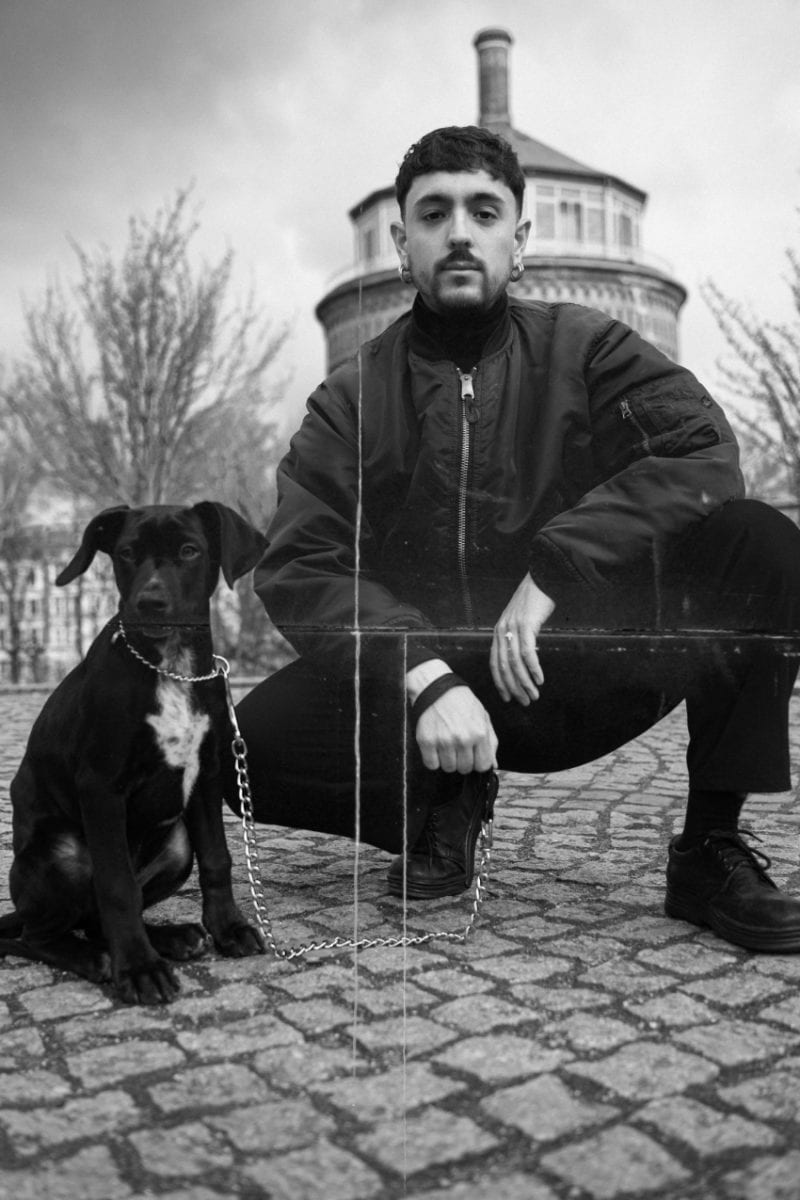
"When I started the label and took on my given name as my new artist name, I really radically changed my approach from one day to the next with my agent. I told her the old life is finished"
You lived in Japan for four months. What made you choose to relocate there? Was it specifically to dig for records?
I don’t know, I was just obsessed with this culture as a kid. I went for the first time around 18 years old and discovered a peacefulness and a parallel dimension that I got addicted to. Since then I have been travelling back once or twice a year staying usually between two or four weeks. I have some friends in Tokyo so I usually go there.
Once you get to Tokyo travelling is expensive, but having friends there has made life a bit more comfortable. Thankfully in the last few years, I had some tours where I finally discovered the rest of the country. I think I actually know Tokyo better than Berlin.
Has your time in Japan impacted the sonics and moods of ‘IDO’ releases or ‘Underwater’?
The biggest inspiration that I took from Japan and that you can feel in my music is its nature.
You’ve been fortunate to live in Paris, Tokyo, now Berlin and you have Uruguayan heritage. Have the experiences in different cities and their cultures had an impact on your sound?
Yes absolutely. On ‘Underwater’, there was not one place that particularly inspired me, but my EP on Dement3d was heavily inspired by Japan for example. I learned music from my Dad, he is a sound engineer and musician. From this, I learned music from South American grooves and instruments. I cannot escape it. It stuck with me. If I want to do the most straightforward techno track, there will always be a percussive groove somewhere. I can’t avoid it. But I guess that’s what makes it my sound too.
Around five years ago I wanted to leave Paris. I was pretty done. My life there was pretty calm, I had a huge group of friends, who I still love. But I had the sense I was always waiting in Paris. Waiting for something…to go to Berlin, to go to Japan. Just dreaming of Japan or clubbing in Berlin. I was coming to Berlin once a month for almost two years.
I decided to move to Japan and I even went to Japanese school for one year in preparation. I flew to Tokyo, left my flat and I was no longer Parisian anymore. I loved my life in Japan but soon realised it was quite complicated for me over there.
It was quite complicated for my work, to find an apartment and the documents needed for residency, and you really need to speak Japanese – not like Berlin when you can get away without much German. I talked to Terre and she told me when you move to Japan, you are then on tour for half a year in Europe. So I made my mind up to come to Berlin and then return to Japan twice a year. But right now I miss it so much…
With your move from Paris to Berlin did you feel like your life became less stressful?
Not at all. Total opposite for me. I can understand the perspective of a holidaymaker in Paris, but as a Parisian, I was living almost at the city limit in the south and had a very quiet life there. I was not close to the centre and I have always been quite anti-social. I just felt uncomfortable. I felt judged by people in the streets, judged about how I look or my sexuality.
When I came to Berlin, being gay, I felt like I could breathe for the first time and be more open. On the other hand, I’ve been suffering from anxiety since I’m 14 and since I moved here it got much worse…
When you grow up in such a beautiful city and move to Berlin, it’s tough. This city is so dirty and ugly, especially in Neukölln, where I live, there’s heroin everywhere on the ground…It’s quite intense. It can be so fucking dark, depressing, grey. It’s ugly in a super inspirational way though. That’s what I loved when I moved. So rough and bleak. But I remember the day I arrived with my suitcases, I thought “Woah this is going to be tough.” So mentally it has been very hard for me living here.
Are you able to channel the city’s bleakness creatively? Do you feel like you are more productive when you are having those darker days and moments?
A therapist friend told me you have to stop trying to be miserable to produce music. This was like last century. This method is over, art doesn’t work like this anymore. You have to find another way to express yourself. But yeah I realised when I feel the worst I make the best music, unfortunately, haha.
Your music, and the compilation, has a meditative quality and offers up an opportunity to relieve stress or anxiety through music. Is this something you consciously channel?
Almost all the music you have heard from me is really music I make to fight anxiety. I think it is maybe quite clear when you hear it. Many people have called it therapeutic techno. What is important for me is to bring a sense of calm and escape to music, which I hope can be used as a tool for other people struggling like me. This is the main reason why I also created the ‘Transcendental Movements’ compilation.
I also worked a lot on myself, psychologically and spiritually. It’s not just music for me, it’s a way of life.
I think I bought much more experimental and ambient music in the past year than ever before. Have your home listening habits changed in the past year?
Yes, but irrespective of Covid, listening to ambient and experimental music is my normal life. I never listen to techno at home. When you are in Berlin you hear so much techno, the last thing you want to do is listen to it at home.
My boyfriend runs an ambient radio show, so he makes a wonderful home background atmosphere 24/7. Covid made me go back to what I used to listen to when I was younger and I ventured into more jazz and soul music to help me find some kind of beauty. But weirdly I ended up just accepting the situation, listening to darker stuff which surprisingly felt really good and helped me get through 2020. I started to feel a little bit disconnected with people around me who were all into buying ambient whilst at home I was playing Stephen O’Malley. He led me to discover all about doom, sludge and drone metal.
It was quite weird for me to be feeling that kind of extreme music but I came to understand that the atmospheric side of it was what made the connection with my sound universe.
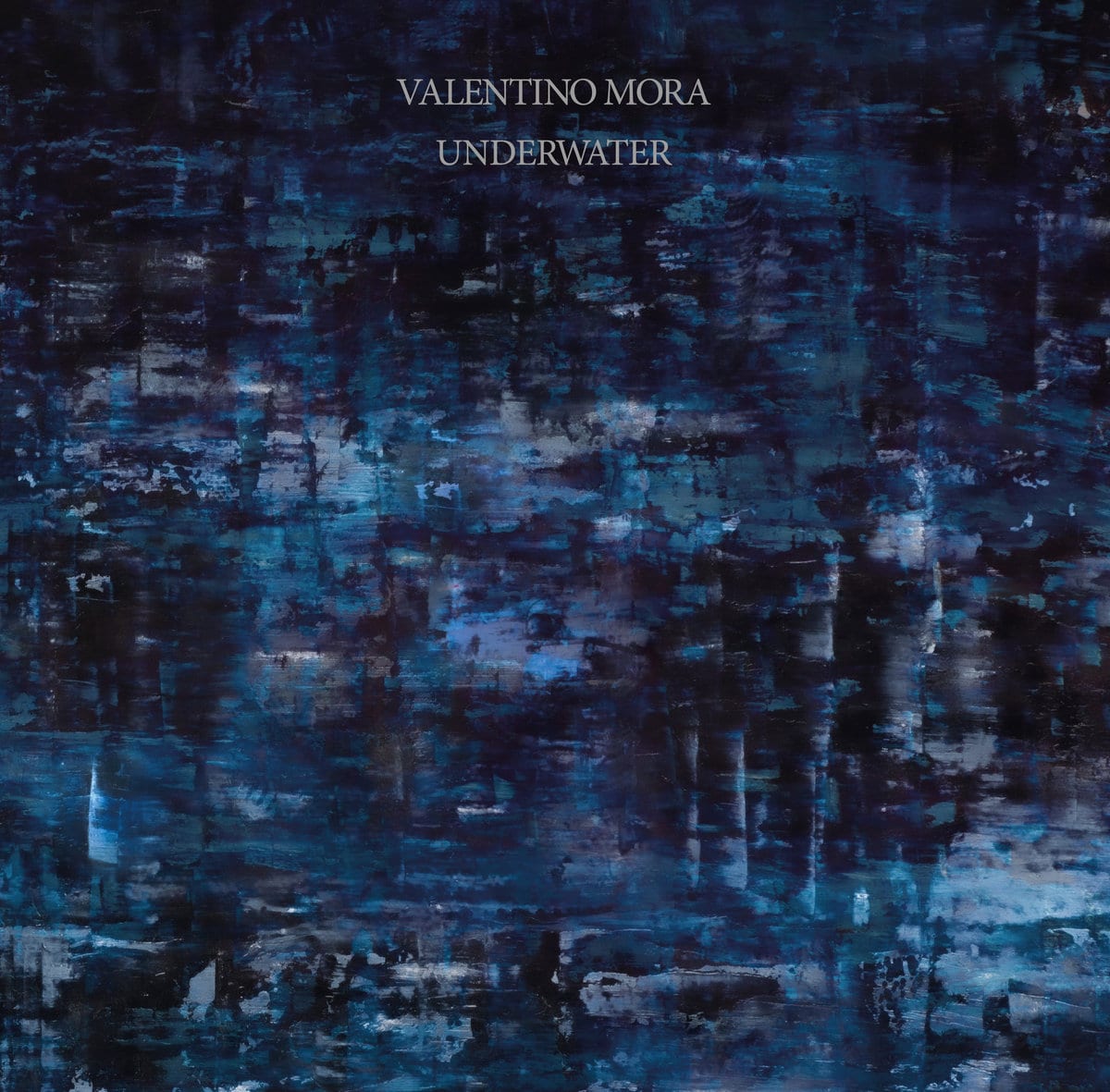
"I had such a clear vision of where I wanted to go, I was recording a new track every day. What takes a long time is the mixdown afterwards, all the details...it’s never as perfect as you would like it to be"
With ‘Underwater’ it seems like you explored further the possibilities of ambient, drone and experimental styles. I had the impression it centres more around sustained tones, frequencies and timbres, rather than percussion and rhythm. Was this a premeditated idea?
I actually think that this record is very rhythmical. It’s just not using many conventional percussion sounds, but there is a lot of sequencing happening. You’d be surprised how much groove and rhythm you can add to a sustained waveform on a modular system.
After the ‘Transmagnetic’ EP I was just experimenting with my system and came quickly to a very specific idea. I knew this piece of music couldn’t be four tracks and I really wanted to do a record that doesn’t need a kick drum. I jumped into this concept over the course of a year. It is a completely different approach to my previous releases.
What was your aim with the ‘Transmagnetic‘ EP? As it also has a very therapeutic quality.
Well, that was actually meant to be more of a techno EP! The EP just has one track with a kick drum, in the end, then three sorts of ambient/experimental tracks. But the idea of the EP was to bring live percussion to a new territory. Still very meditative but also more mystical.
What is your normal workflow for creating music? Are you usually quick in arranging tracks? Do you usually produce a large quantity that you then trim down to fit the concept?
Composing music goes really fast for me usually. But for ‘Underwater’ I had to make a lot of music to select 8 tracks. In the process of that album, I had such a clear vision of where I wanted to go, I was recording a new track every day.
What takes a long time is the mixdown afterwards, all the details…it’s never as perfect as you would like it to be. But also for an album, it takes a lot of work to put it together as one piece of music. A sonic journey that you can listen to from the beginning to the end, has to flow.
I usually record each element live for 10-15 minutes, and various takes, with very little editing on the computer. Each aspect is played live each time. It’s not quite the same with a techno track as you have loops of drums or a hi-hat for example.
Do you always record extended tracks, then edit? I remember some of the tracks on your IDO releases hit the 10-minute mark.
I guess so, but it is really automatic for me. To reach that state of mind that I have been looking for since my very first release on IDO, I realised very quickly that whether DJing or dancing we need time to get into that state of mind and it became normal for me to make longer tracks. For me, my tracks are too short but at some stage, they have to go on a record so they need to be cut down haha.
Sometimes I do have to watch the clock. When I record something it is around 10 minutes and from there I see where I go. It’s sort of an automatic clock I have in my head.
I assume many producers who use lots of external hardware tend to have a similar approach to recording tracks, emulating a live performance. Is this similar to your approach?
Yes definitely. When I record, let’s say for the main ingredients of the tracks, I would record a few takes and keep them and then choose which take is the best. Normally the first take is pretty good and I take that.
Have you learnt to become more efficient with your time in the studio?
I know when I should not make music and I know when I am ready. I have been making music for 20 years or so and I know myself. If I don’t feel excited about the idea of making music, or am lacking inspiration I don’t get close to the studio. If I need 6 months off from the studio, then I will take it.
When I was younger, I used to go to the studio every day and even though I didn’t make anything good I was still experimenting and learning. Of course, now I am still learning, and I buy gear regularly, but I really hate to be losing time in the studio without an idea.
Stepping back a bit. How did the collaboration first start with Spazio Disponibile?
Donato Dozzy was one of these artists that I followed for a very long time. He’s an artist that has such a unique sound. Such a strong character and signature that he can move in different styles, genres and tempos and it will always sound like him. He can make or play ambient, techno, house or more recently drum and bass and he can go all over the place.
He also doesn’t give a fuck about the outside world or the industry or what is happening. He is one of very few artists that every DJ could play a track from. For example, the drum and bass DJs in the world probably can’t connect with my music or know me but with Donato, they probably know him and play his tracks. That’s how big of an appeal he has. Same for jazz fans.
He was also for me the most inaccessible person in techno because of his legendary status. I also originally thought he’s not one of those social media type people but recently I discovered he loves Instagram and pictures of his cat haha. But like Sprinkles, she was someone I thought I could never get close to you know…
He’s certainly up there with the very best in the business. So how did that relationship between him and Neel eventually materialise?
I played with Neel (real name Giuseppe Tillieci, co-owner of Spazio Disponibile and owner of Enisslab Studios) at a gig and came with a record I made. He was playing after me and I gave him the record and he said: “Ah I actually have this record already and need a new one because I played it so much!” I was like, “oh my god what!”
We exchanged contacts and I asked him to become the new mastering engineer for IDO. After this, he came to play a gig in Berlin and asked me for a coffee and I was a bit uncertain at first. When we met he did this amazing professional presentation of his label and basically offered me to be part of the family. I was like “what the fuck!”
It was such a surprise as Spazio at this moment was the closest label to my sound. Every release from them I was like “oh my god, need to get that release, and that one” and then when they approached me I was a little bit in shock. For quite a few months before I had contact with Donato, I was talking with Neel and sending him tracks. For a while, nothing came back and I thought maybe it isn’t going to happen after all. I know a lot of people send them music and it doesn’t work out.
How long was it before you actually met Donato?
He had a gig in Berlin and I went to see him at Berghain. After his set, there was a huge line to talk to him so I waited. Usually, I do not have such a fear of talking to DJs or being a fanboy but for some reason, it was one of the people I was scared to talk to. You know for a start he looks like a mad scientist haha!
Anyway, I waited until he talked to everyone to the point where he was probably ready to go home and not speak to anyone else. But I went over and said “Hi I’m Valentino Mora and I don’t know if you have heard my music with Neel yet?” and then he suddenly brightened up and was like “VALENTINO!” in a super Italian accent and took me in his arms and told me he loved my music and I just cried right there and then.
He told me some really powerful stuff that night. Some really personal compliments. And to get this from a guy like Donato Dozzy at a point in my life where I really had very low self-esteem, was completely surreal. From there I became part of the family.
When I finished the production of the ‘Transmagnetic’ EP I called them and said I want to do an album and they were super excited. It took forever to finally get ‘Underwater’ out there. With a few pressing plant problems and Covid in between it took in total 2-3 years to finally see daylight. A lot of waiting.
With artists like Mike Parker, Svreca, Retina.it and Crossing Avenue releasing on Spazio it seems like a nice family to be part of.
Well, there is also Marco Shuttle, and Grand River who I actually met through the label and now she is one of my best friends. She also lives in Berlin and her ‘Crescente’ EP was so good.
Did the delay represent a problem for you in the way you wanted the album to be interpreted? Did you feel a sense of regret that you could have changed some tracks?
No no. I am very happy about it. I was very scared with a two-year delay that I would have thought that I could have changed this or I should have done that differently. But, the music that I make now under my own name is so personal, it’s really not about creating modernity. It’s dance-focused music, but not necessarily club focused. I think it’s quite timeless in a way as it doesn’t age…maybe it’s not “cool music” haha!
So you wouldn’t describe your music as contemporary?
I wouldn’t say it’s trendy. I don’t try to make trendy music. I have no issues in releasing my music even two years later as it still means something to me. Another main point is that my music is neither inspired by the Zeitgeist nor is it politically inspired. It is mostly inspired by nature, spirituality and body and mind. So that’s why it still feels relevant, as the inspiration is the stuff that will never go away.
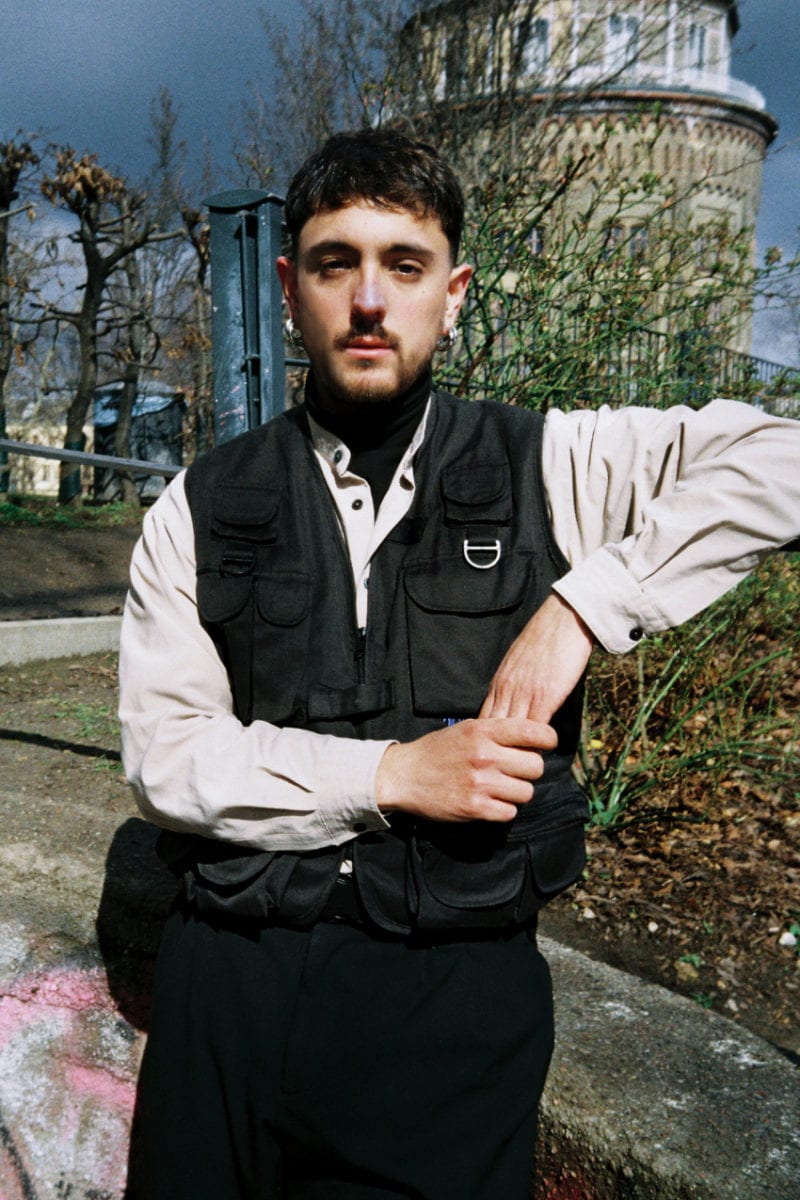
"The cool thing is that you can also be very minimal and have four modules and with that, you can get lost with all the opportunities"
I see you have lots of external hardware, effects pedals and synths in your home studio. Could you talk me through the gear you used for making the album and your usual track making process?
I have been spending all my money on modular over the past years. ‘Underwater’ was 99% modular, with atmospheric percussion recordings, and a couple of elements from the only VST that I sometimes use.
I have the same routine for any type of music that I make nowadays and I guess it started from the ‘Underwater’ album and the way I made that. There are a lot of remixes that came out actually already that I finished after the album. And yeah those were mostly done with modular. Generally, it’s modular together with some acoustic percussion recordings.
I don’t have them here in my home studio, I have a lot in my Dad’s studio in France. He has a huge collection of South American and African percussion instruments and when I go there I record a lot of stuff, less so now as I have a nice library of recordings from those sessions. When I use percussion I generally follow the bpm of that original recording.
All my releases on IDO were pre-modular. You also have to understand how slow I am with vinyl production, not the music-making, but the actual record and sleeve and so on. It’s now really not the same process as the first IDO releases.
As a novice producer, I received advice from producer friends to limit the parameters available and get the most out of a small number of tools before expanding my studio or testing out modular for example.
I don’t know about modular actually, I think it’s actually the best tool to learn music. Well, music theory at least. A lot of people ask me, what should I start with?, what should I buy? Everyone thinks they need to start with the O-coast or start with semi-modular as it’s easier, but it can be actually very confusing for people who are not familiar with music theory.
My boyfriend started to make music more seriously and with modular synthesis you understand immediately what it is. It’s electricity.
I understood maybe three years ago what an envelope really was…of course, I knew it was an ADSR (Attack Decay Sustain Release) but I didn’t actually know what was happening circuit-wise inside a synthesizer to obtain that result. You pick up some very basic stuff you might automatically do on a keyboard but on modular it becomes much clearer. The cool thing is that you can also be very minimal and have four modules and with that, you can get lost with all the opportunities.
What kind of monitors are you using there?
These are Yamaha HS7s. My producer friends who come here make fun of me because they care a lot about how amazing their monitors are, but when you are in a flat with three-metre-high ceilings, nothing is going to sound good in here anyway. I mean if you know your sound and the sound of the room and it’s good in your headphones, it doesn’t matter how expensive the monitors are.
Actually, I would say the shittier the speakers are the better you will sound haha. If it sounds good on a shitty system it will sound incredible in the club.
What about computer software?
I basically don’t use computer software, and I have literally only one VST from Native Instruments. I don’t know anything about computers or plugins haha. I do mixing and EQing with Logic but everything else is external hardware. All the mastering is now done by Neel.
I have this great analogue mixing desk, a Roland Space Echo Delay, a Digitakt for the live show then it’s just modular. I really am a gear freak there is so much shit I want!
How long have you had the Space Echo as they are quite expensive to buy nowadays right?
I bought this over 10 years ago in Paris for €300 and around a year ago I wanted to buy more and more modules. I really needed to invest in those modules for my live show, delays and whatnot and the Space Echo is obviously not convenient for a live show.
So, when I saw what it’s worth now I thought just for a split second ‘should I sell it?’ But that lasted for about a millisecond and decided of course I am never going to sell it!
You have quite the collection of Moog synths and drum machines too.
The Moog DFAM is probably the most important thing in my studio. It’s an incredible analogue drum machine and I push it to its limits, it’s good for so much more than percussive sounds, it’s one of my favourite machines ever.
I also thought about selling my Moog Voyager, I made pretty much everything from the ‘Transmagnetic’ EP with the Voyager. Some extra kicks and stuff but everything else was done with this. I’m so glad I found a way not to sell at the time. It’s such a beauty.
Given the possibilities with all this hardware, what do you usually start with first?
I make a few samples, kicks or hi-hats and then I sample them for some of my techno tracks but otherwise, I usually start with a blank page. On my modular system, I have two quad VCAs and I send every output to my analogue mixer so each sound source is divided directly on the mixer, which is amazing for live recording.
What are your thoughts on modern techno? Have you tried to distance yourself from the scene as Dozzy has done?
No, no. I love techno. Back when I didn’t have any gigs it was mainly as I was in this house scene and because I went so deep with my production and my sets no house promoter wanted to book me anymore.
I was playing at Panorama Bar for example, but no other promoter or label wanted to book me. They all said it was super elegant and liked what I was doing but I remember receiving many messages saying “your music sounds good but we cannot imagine hearing it in a club environment.” They were worried people were coming for a party and they were not going to dance and even calling it pure ambient, even though I had these huge kick drums in my 120bpm tracks.
Despite some tracks being super strong and heavy, even the house stuff, some people still referred to it as ambient. The only people that seemed to connect with it and understand my ambient house were techno people. Techno people were always very inspired and connected to the ambient scene whereas house people like to party and want to have fun. Techno DJs, promoters and producers were more open-minded. I started an ambient house label but ironically I got accepted by the deep techno community.
I really have met some amazing people and have such a strong connection sonically with all these people. Now I really identify with the techno scene.
Did you ever expect to be adopted by a scene you were supposedly on the opposite side of?
It was new to me even though IDO tracks were being played by this deep techno and the tribal scene I didn’t know anyone in the scene. I started to meet so many artists I didn’t know and connect with them. Originally I liked techno from Detroit and Chicago or experimental music so I was not really familiar with the deep techno scene.
For example, I was playing deeper and deeper at Panorama Bar and at some point, the booker said it was too deep so why not open up Berghain instead. And boom, it was a revelation. I guess my music fits more for that crowd and in that techno environment.
What other clubs do you like playing as a DJ?
I was really really sad about the closing of De School in Amsterdam as I loved playing at this club. Asia was always incredible. In the past four years, there has been a huge evolution, explosion of the deep techno scene in Asia. China, Korea, Taiwan, Japan…all over really they love this music. The techno they like is super deep. Berlin has a super nice deep techno scene but it’s still a city in love with harder, industrial style techno.
You are going to be busy with IDO this year but what other fun stuff have you got in the pipeline?
In preparing my live show I actually accidentally created another album that is ready to be mastered. I have a lot more abstract stuff ready to release and think my live show will be much more experimental.
I am still really excited for clubs to open again and also to DJ but there will be something new to show, another context that I am looking forward to sharing. Much more of an immersive sit-down experience.
I hope my first shows will be live, especially after the album release. I have just received my first confirmed gigs for later this year and I have no idea where it will go ahead or not but let’s see. My next Berghain gig seems a long, long way away!
Underwater’ LP is out now via Spazio Disponibile. Order a copy from Bandcamp.
Photos by Spyros Droussiotis
TRACKLIST
1. Hadal Zone
2. Mass Frequenz
3. Spiral Falls
4. Absorption
5. Inhalation
6. Morphosa
7. Glass
8. Membrane
